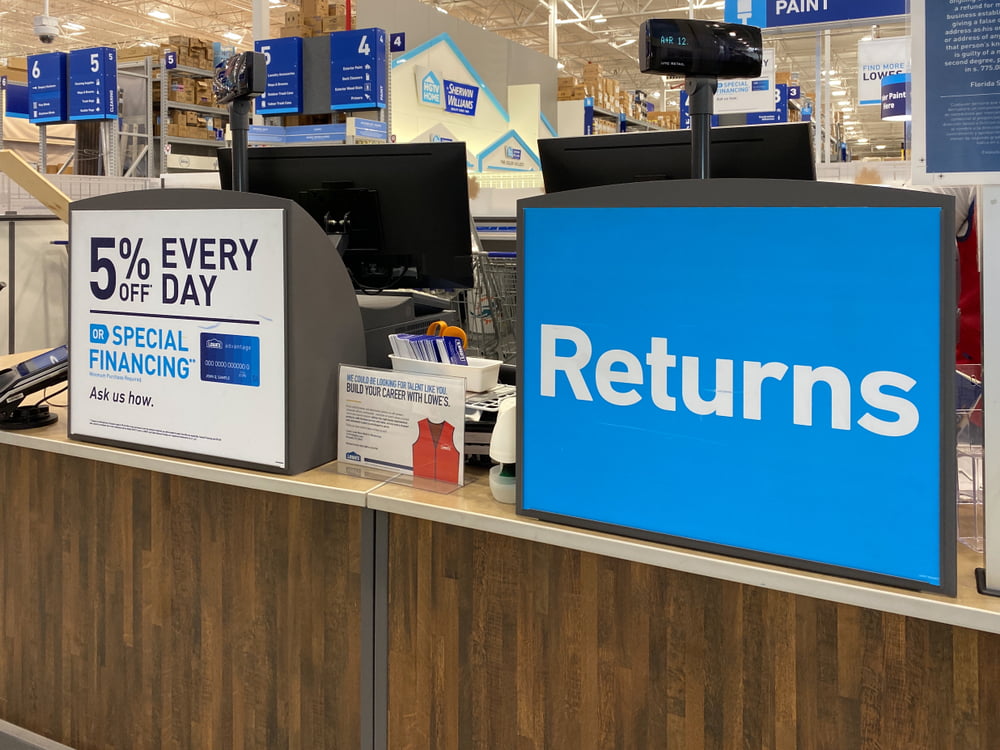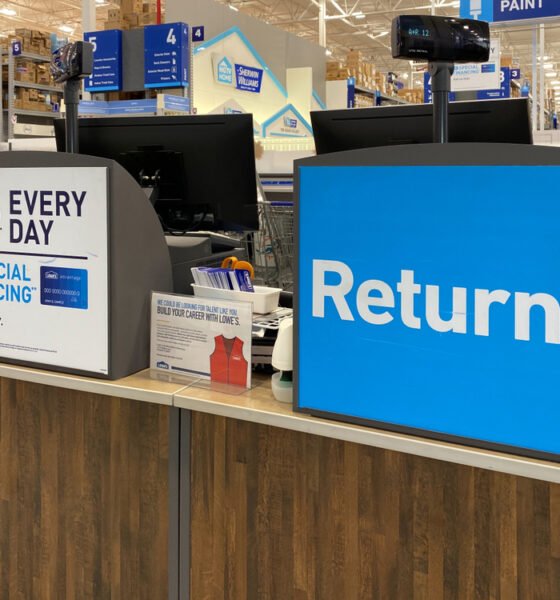

Environment
Flexible Return Policies Can Make Retail More Sustainable
A growing number of businesses are developing policies to be eco-friendlier. The retail sector is one of those most focused on shifting towards sustainability, since customers are placing so much pressure on it.
One poll found that 80% of customers consider sustainability when making purchases. Therefore, brands need to make sustainability a priority. One way that they can do this is by using sensible return policies to minimize waste.
Let’s face it: It can be quite a pain in the neck to return something you were eagerly waiting to purchase. You will be asked to bring it to the store or, in the case of the online order, package and mail it to the post office and wait for weeks before a refund can be processed.
Large retailers often put forward flexible return policies to control waste since most consumers throw away stuff that doesn’t fit their needs. For example, Target thrives on making returns hassle-free for buyers by giving them 90 days to claim a refund. It also covers shipping and handling of the item if it needs to be mailed to the store.
Retailers like Target, Walmart, Walgreens, or Costco have a considerably long return window to assist consumers. They also claim they are contributing toward a greener environment by controlling waste production. After all, adapting a zero waste solution is essential for helping the planet. However, is it helping?
Let’s look at Target, for example. The store promises to repair, resell and recycle the returned used items. Consequently, this can help drastically reduce the amount of clothing and other products in landfills, but there is another side to the store. First, the shipping and handling of thousands of items returned every day significantly contributes to carbon emissions.
Furthermore, some brands don’t hold up their end of the bargain. They promise to dispose of used returned items ethically but don’t tend to do so.
1- Encouraging a Circular Economy
If a product is used, you might wonder what a store like Walmart or Target will do with it. The most obvious answer is that they will repair, recycle, and resell it, which is how the circular economy works. By adopting such practices, the stores are also promoting sustainable practices amongst buyers. Consumers are encouraged that certain products can be repaired and reused. Therefore, they will not be inclined towards dumping it and simply purchasing a new one.
2- Reducing Product Waste
The most significant advantage of adopting return policies that are welcoming and generous is that it helps reduce product waste as consumers can quickly return or exchange the things they are not satisfied with instead of disposing of them and saturating landfills. At the same time, the brands can reuse the items and spend fewer resources on producing new ones. Some brands have gone a step ahead! For example, Amazon introduced a “no-box” return policy in 2019, where customers were asked to drop off their returns without packaging them. The program was meant to reduce waste by eliminating the need for buyers to dispose of the packaging. Furthermore, it simplified the return procedure, which may be why multiple other brands have resorted to this mode of return now.
3- Helping Certain Retailers Stand Out From The Rest
Flexible return policies may not be directly helping in creating a sustainable future. Still, they do contribute to helping a brand stand out from the tough competition that exists in the market. The public is not increasingly concerned about a greener environment. Therefore, consumers are inclined to shop from retailers that commit to their promise of reducing waste. Buyers automatically have a soft corner if a brand pledges to recycle and reuse the items sent back to the store. It helps increase customer loyalty and leads to positive word-of-mouth for the brand.
It will be wrong to say there are no downsides to how flexible retailers have made returns for the buyers. However, the other side of the picture is quite problematic.
4- Increasing Environmental Impact
Online and returns via mail often require packing and long-distance transportation, which has already contributed significantly to carbon emissions and waste. If the method is unnecessarily and excessively used by the consumers, as encouraged by the businesses, it can completely offset the minor benefits of flexible return policies. Did you know that the National Retail Federation has published research that states that transportation and packaging of returns generated 5 billion pounds of landfill waste and 15 million metric tons of carbon emissions in the United States alone? Shocking!
5- Encouraging Unethical Consumer Behavior
I have often seen consumers buy things to return them after mild use. As strange as it sounds, this is quite common, and excessive returns like these can harm the brand’s reputation. You would not believe it, but many customers have been known to buy fancy dresses to use overnight and then return them the next day, which can lead to increased use and waste. Moreover, it will offset the benefits of reducing product waste through circular economy practices. One of how retailers are trying to control this practice is by implementing restocking fees or putting forward a minimum purchase amount to be eligible for a free return.
Read About These Interesting Return Policies That Have Impacted Sustainable Retail!
Walmart Project Gigaton: The initiative aims to reduce greenhouse gas emissions by 2030 by working to reduce waste, increase recycling and improve energy efficiency in Walmart’s operation and supply chain.
Levi’s Buy Better Wear Longer Program: The famous brand introduced this program where customers could return their old jeans and have them recycled or repurposed as per demand. The company also offered repair services to encourage buyers to extend the usability of their products.
Target Take Back Program: The brand took some sustainable retail initiatives, such as the Take Back Program, which allowed customers to bring their old and used clothing to receive a coupon for their next purchase, which promoted a circular economy and reduced textile waste by up to 30%!
Costco Composting Program: The store implemented the composting program to ensure no food was wasted. It helped the store play its part in significantly reducing food waste.
Zara Closing The Loop Program: The program encourages customers to bring in old or unwanted clothing to be recycled. The program aims to reduce textile waste and promote a circular economy. Another example is that of the H&M fashion retail brand that introduced the Garment Collecting program to help customers bring in old, unwanted clothing for recycling and repurposing.
Before You Go!
The future of sustainable retail is quite bright, but we all must learn to do our part responsibly. As you can see from the example above, all sorts of retailers have contributed, in one or another, to play their pay in sustainable retail. Where retailers have put forward flexible return policies to facilitate waste reduction, consumers must also learn to use the “return” button much more wisely. Can you think of a better way to utilize the shirt that didn’t fit? By giving it out to someone in need, you can help reduce waste; that is good for the planet and great for someone’s wallet on a tight budget!
Flexible return policies can provide a great deal of benefits for customers as well as strengthen the concept of sustainability in retail. However, it may also have several negative impacts, particularly if consumers abuse the policies or if retailers cannot correctly manage the costs and environmental effects that result from excessive returns. So, how do you plan to play your role in this noble movement? Have you ever shopped from these retailers and utilized their return policy? Do share your experiences!


 Environment12 months ago
Environment12 months agoAre Polymer Banknotes: an Eco-Friendly Trend or a Groundswell?

 Features11 months ago
Features11 months agoEco-Friendly Cryptocurrencies: Sustainable Investment Choices

 Features12 months ago
Features12 months agoEco-Friendly Crypto Traders Must Find the Right Exchange

 Energy11 months ago
Energy11 months agoThe Growing Role of Solar Panels in Ireland’s Energy Future



























